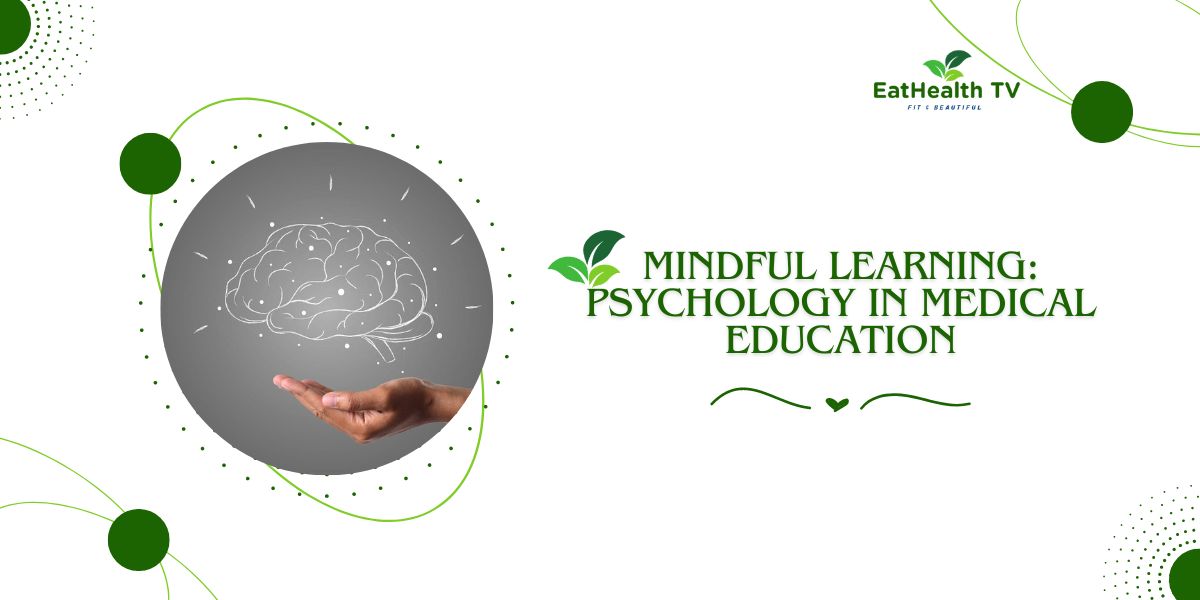Mindful Learning: Psychology in Medical Education
Unleashing the Healing Potential: Embracing Mindful Learning in Medicine

Mindful Learning: Psychology in Medical Education
Medical education is a rigorous and demanding journey, requiring students to acquire vast amounts of knowledge, develop complex skills, and cultivate a deep understanding of human health and disease. However, traditional approaches to medical education often focus solely on the acquisition of factual knowledge, overlooking the importance of psychological factors in learning and retention. In this article, we explore the concept of mindful learning in medical education, delving into the role of psychology in shaping how medical students learn, retain information, and ultimately become compassionate and competent healthcare professionals.
Understanding Mindful Learning in Medical Education
Mindful learning in medical education involves cultivating awareness, intentionality, and reflection in the learning process. It goes beyond rote memorization and passive absorption of information; it’s about actively engaging with the material, making meaningful connections, and understanding the underlying principles that govern medical practice. Mindful learners in medical education approach their studies with curiosity, empathy, and a deep commitment to lifelong learning and growth.
Psychological Factors in Learning
Several psychological factors influence how medical students learn and retain information:
- Motivation: Motivation plays a crucial role in driving learning behaviors and outcomes. Students who are intrinsically motivated, meaning they derive satisfaction and fulfillment from the learning process itself, tend to be more engaged, persistent, and successful in their studies. Motivation can be influenced by factors such as personal interests, career aspirations, and the perceived relevance of the material to future practice.
- Attention and Focus: Attention is the foundation of learning, allowing students to selectively process and encode information. However, maintaining focus in the face of distractions, competing priorities, and information overload can be challenging, particularly in today’s fast-paced digital world. Mindful learners in medical education develop strategies to enhance attention and concentration, such as mindfulness meditation, time management techniques, and minimizing multitasking.
- Memory and Recall: Memory is essential for storing, retrieving, and applying knowledge in medical practice. Understanding the principles of memory formation and retention can help students optimize their study strategies and enhance long-term recall. Techniques such as spaced repetition, elaborative encoding, and retrieval practice can strengthen memory consolidation and retrieval, leading to more durable learning outcomes.
- Emotions and Stress: Emotions play a significant role in learning, influencing attention, motivation, and memory processes. Medical students often experience a wide range of emotions, including excitement, anxiety, frustration, and self-doubt, throughout their education and training. Managing emotions effectively and cultivating emotional resilience are essential skills for navigating the challenges of medical education and maintaining well-being.
- Metacognition: Metacognition refers to the awareness and understanding of one’s own thought processes and learning strategies. Mindful learners in medical education engage in metacognitive practices such as self-assessment, reflection, and goal setting to monitor their progress, identify areas for improvement, and adapt their study approaches accordingly. Developing metacognitive skills fosters self-regulated learning and enhances academic performance.
Implementing Mindful Learning Practices
To incorporate mindful learning practices into medical education, students and educators can consider the following strategies: Just as we know Mindful Study Habits: A Lifestyle Approach to Learning
- Promote Active Learning: Encourage active engagement with the material through problem-based learning, case-based discussions, simulations, and hands-on experiences. Active learning promotes deeper understanding, critical thinking, and clinical reasoning skills, preparing students for real-world practice.
- Foster Collaboration and Community: Create a supportive learning environment that fosters collaboration, peer support, and mentorship. Peer learning activities, study groups, and mentorship programs facilitate knowledge sharing, skill development, and emotional support among students, fostering a sense of belonging and camaraderie.
- Integrate Technology and Multimedia: Leverage technology and multimedia resources to enhance learning experiences and engage diverse learning styles. Virtual reality simulations, interactive anatomy software, online tutorials, and educational podcasts provide interactive and immersive learning opportunities that cater to individual preferences and needs.
- Provide Feedback and Reflection: Offer timely and constructive feedback to students on their performance, progress, and areas for growth. Encourage students to engage in reflective practice, journaling, and self-assessment to deepen their understanding, clarify their goals, and identify strategies for improvement.
- Promote Self-Care and Well-Being: Prioritize student well-being and self-care by providing resources and support services to address stress, burnout, and mental health concerns. Encourage students to cultivate healthy habits, such as exercise, mindfulness, sleep hygiene, and social connections, to sustain resilience and well-being throughout their medical education journey.
Benefits of Mindful Learning in Medical Education
Embracing mindful learning practices offers numerous benefits for medical students, educators, and healthcare systems:
- Enhanced Learning Outcomes: Mindful learners in medical education demonstrate deeper understanding, critical thinking skills, and clinical competence, leading to improved patient care outcomes and professional success.
- Increased Engagement and Satisfaction: Mindful learning fosters a sense of purpose, curiosity, and intrinsic motivation among students, leading to increased engagement, satisfaction, and retention in medical education programs.
- Improved Well-Being and Resilience: Mindful learners develop emotional intelligence, self-awareness, and coping strategies to navigate the stressors and challenges of medical education with resilience, fostering greater well-being and professional fulfillment.
- Enhanced Professionalism and Empathy: Mindful learning promotes the development of empathy, compassion, and professionalism in medical students, enabling them to communicate effectively, collaborate with colleagues, and provide patient-centered care with integrity and empathy.
Conclusion
Mindful learning in medical education offers a holistic and humanistic approach to learning that honors the complexity of the medical profession and the diverse needs of learners. By integrating psychological principles into educational practices and fostering a culture of mindfulness, reflection, and well-being, medical educators can empower students to become compassionate, competent, and resilient healthcare professionals who are equipped to meet the challenges of modern healthcare with integrity, empathy, and excellence. As we continue to explore the intersection of psychology and medical education, let us embrace mindful learning as a pathway to lifelong growth, fulfillment, and professional success.




